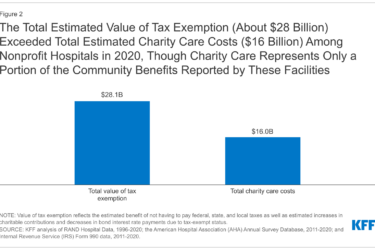Dental coverage might not have grabbed top billing in the Patient Protection and Affordable Care Act, but the law does contain provisions that promise to extend dental care to millions of poor and uninsured children as well as to expand the nation’s safety net clinics and oral health infrastructure.
What will happen to those initiatives if Republicans make substantial gains on Nov. 6?
 Mary Otto, AHCJ’s topic leader on oral health is writing blog posts, editing tip sheets and articles and gathering resources to help our members cover oral health care.
Mary Otto, AHCJ’s topic leader on oral health is writing blog posts, editing tip sheets and articles and gathering resources to help our members cover oral health care.
If you have questions or suggestions for future resources on the topic, please send them to mary@healthjournalism.org.
That was the question asked of a panel of experts gathered for the American Public Health Association annual meeting.
“Healthcare could change from night to day in the next three weeks depending on changes in the Senate and presidency,” public health dentist Myron Allukian Jr. said at the meeting, covered by Donna Domino for DrBicuspid.com under the headline “APHA Analyzes Healthcare Reform’s Impact on Dentistry.”
Panelists weighed in on what could be at stake, Domino reports:
The ACA’s pediatric dental care component “is projected to provide care to 3 million children by 2018,” said Herb Schultz, a regional director of the U.S. Department of Health and Human Services.
In addition, the law includes roughly $10 billion for the public health and prevention fund that will go to community health centers and federally qualified health centers (FQHCs), and another $11 billion targeted at expanding the number of FQHCs, many which will provide dental care, Schultz said.
Another $10 billion is slated for Medicaid and Medicare pilot projects aimed at improving health care delivery, panelists said.
The U.S. Supreme Court upheld the health care overhaul law in June. The high court also ruled that expansion of the Medicaid program is voluntary for the states. Yet states could use the ACA to expand dental care for poor adults, Schultz told the meeting.
“A significant amount of dollars will go toward dental services,” Schultz said.
So, could victorious Republicans really make the ACA go away?
Mary Agnes Carey of Kaiser Health News took that topic on in her piece “How The Health Law Might Be Changed By The Next President.”
“Gov. Mitt Romney has promised a full-scale repeal of the ACA,” Carey writes.
“He will repeal it in its entirety and replace it with reforms of his own,” Romney spokeswoman Andrea Saul told Carey in an email.
“But,” Carey adds “short of Republicans controlling both chambers of Congress, he would have to rely on the federal regulatory process to choke off funding and give states wide latitude to implement – or ignore – the law. If Republicans took control of the Senate but had fewer than the 60 votes needed to pass most legislation, Romney could be forced to use a difficult legislative process known as “reconciliation” to try to dismantle the measure.
Joanne Kenen, AHCJ’s Health Policy topic leader, says, “If Romney were to win but the Democrats retain control of the Senate, his path to a complete repeal of the law is not clear or immediate.”
“Still,” Carey writes, “some of the law’s supporters believe such a Republican effort could be successful.
“I would say the bulk of it can be dismantled,” former Senate Majority Leader Tom Daschle, D-S.D, told her. “[Romney] can use reconciliation for certain amounts affecting the budget of the federal government. … He could have a profound effect on the outcome of the ACA in a very short period of time.”









